Erbil’s Most Popular Tour Guides
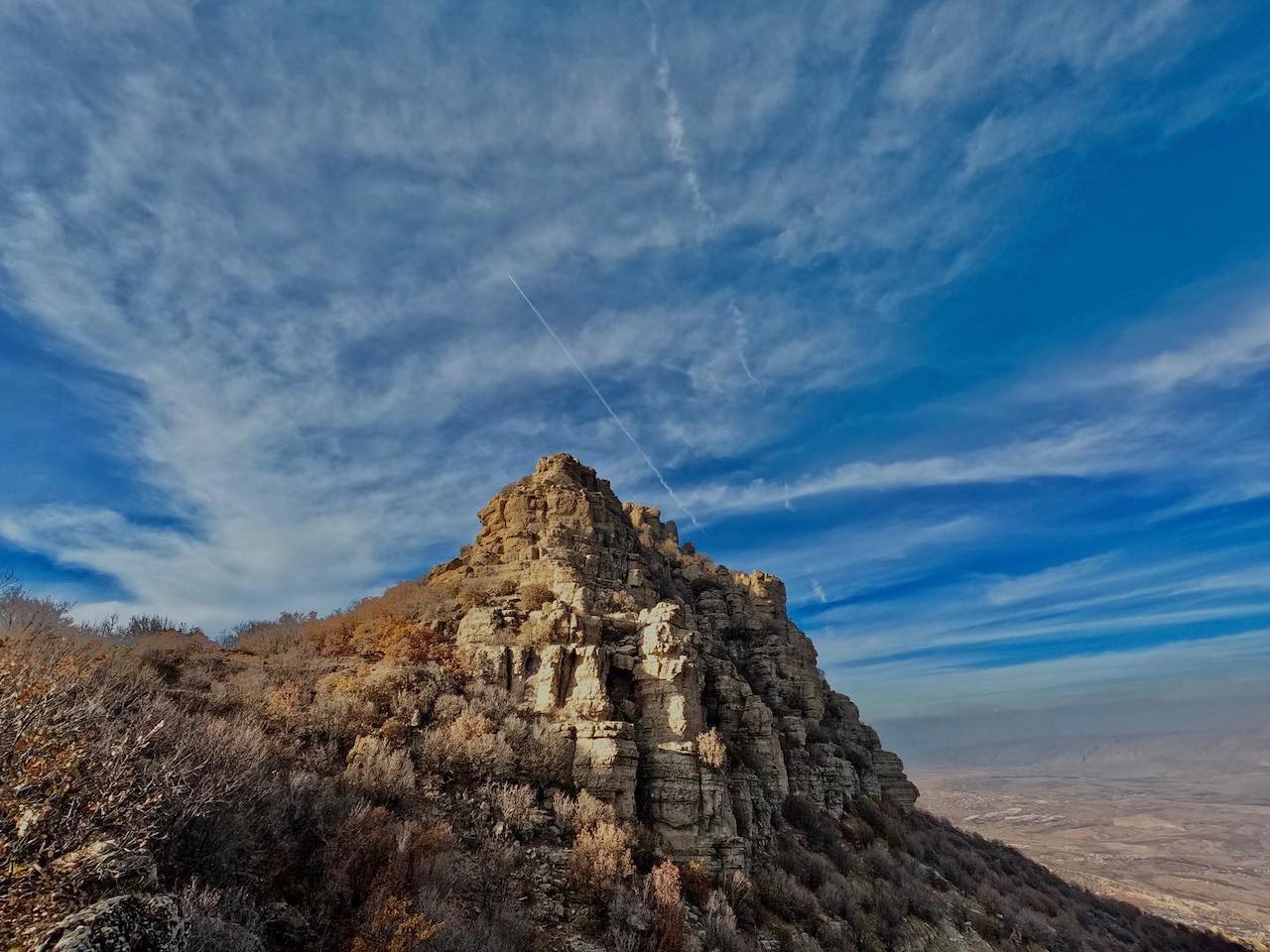
Sophia Schultz
On my last Iraq visit, I met four local travel guides in Erbil, Iraq: Haval Qaraman, Balin Zrar, Rekan Rasool, and Karwan Wahed Nawkhosh.
Self-made, entrepreneurial – they are their own bosses. Sipping on Iraqi-style “Turkish coffee,” I learned about how they journeyed into their careers and how they became so popular and successful. They are very different of course and don’t really know each other very well, for this essay, however, I am trying to find similarities in their stories that might be interesting for someone who is thinking about becoming a tour guide.
Apart from Rekan, who is more in the business of organizing outdoor adventures (like climbing, and kayak tours), usually for a mix of locals and tourists, in the case of the others, the description ‘tour guide’ includes: picking someone up from the airport, recommending hotels, providing transport, and organizing full day-long trips including accommodation, traditional meals, cultural programming, overnight stays, and personalized tours at historic sites and hikes in the beautiful landscape of the region.
What was interesting to me is that the approach of hosting tourists in their home country, was very personal. The way they would remember their guests was similar to how someone would speak about having invited someone to their house. All of them remembered names of guests, and the countries where people are from: Sweden, France, USA, Germany, UK, and many more. Because of the visa restrictions that Iraqis who only have an Iraqi passport face, it is not easy to travel to the countries where visitors to Iraq are from, but still, there are many far-away countries where they would have a friend now.
The decision to become a tour guide in the first place, was, according to their accounts, based on their social networks, colleagues and friends, an openness to learn, and the love for their country. They organically grew into their roles. What became apparent was that in many cases, the fact of being a tour guide was the reason that led them to explore certain sites or remote villages. Based on the interactions with visitors they delved deeper into the history of places, and their significance, thereby becoming more knowledgeable about their own unique and rich cultural heritage. Some of my interview partners admitted that there are a few places that they might have never visited were it not for tourists asking them to take them there. This made me realize that there is a beautiful museum in my hometown in Germany, that I have barely visited!
Because of the personal connections to visitors, they also all described moments where they acted extremely spontaneously to accommodate personal preferences and last-minute changes of plans. Especially in the beginning, when they were new to their jobs, they fully relied on the scheduling of their guests. The guests would be the ones with the plan, they would present a route they had researched, mention places they had heard about. This quickly changed though as the tour guides became more and more sought-after. Haval’s first real client, very satisfied with his visit, turned out to be a writer for Lonely Planet and Haval quickly rose to fame from there 😀 There is a lengthy piece about Rekan in the New York Times, and Balin was on this webinar with us here at ARCH. Speaking of difficult guests with odd requests – after I insisted that I would love to play ping pong, Balin took me to a mall in Erbil where we could play–it was fun!
Not giving up, even in extremely difficult times, for example during the rise of ISIS (when the only visitors were a few journalists who needed someone with local know-how), nowadays the four are the go-to tour guides of Erbil. When someone contacts them, the usual approach now is to suggest a few itinerary options based on the length of the booking and the specific interests (Nature lover? History buff?..). Balin and Haval have recently added more tours outside of Iraqi Kurdistan as well, to sites such as the ancient city of Babylon, and Ur, the birthplace of Abraham.
To see selfies and fun photos from the various trips, I encourage you to follow them on social media (info at the bottom of this essay). Karwan likes to take along the Kurdish flag and enjoys it when tourists pose with it. The Kurdish flag is still not very well known around the world, so he suggests to visitors to post it on their own social media to spread awareness about Kurdish issues. He explained that his guests from abroad have told him that they often get curious reactions, “whose flag is this? It’s beautiful with the bright sun in the center!”
In my conversations, I learned something else about Erbil’s tour guides. Sometimes small “tricks” helped them a lot, things like well-designed and user-friendly websites, reviews on tripadvisor and other such sites. If you’re based in Iraq, reading this piece, please feel free to contact us here at ARCH for more tips. Little twists where one might underrate their importance, or take them for granted, can help a great deal. For example, help with email templates, or the proofreading of website content. A friend (former client) of Haval once offered to voluntarily spend a couple of hours for a few weeks to improve his website’s SEO. And Haval immediately noticed the difference a couple of months after: Many more people found his website when they googled a trip to Kurdistan. The tour guides ask their guests to please rate them online, and to write short reviews about their experience – this has proven to be very valuable. An active social media presence is also extremely important for engagement and to inspire people to make the trip to Kurdistan, Iraq and to answer their questions. Balin tries to not only take beautiful photos, he also adds historical facts and information, and he replies very fast if someone has an inquiry. Rekan takes amazing photos, too (the cover photo for this post is his, it shows Safen Mountain, Shaqlawa, Iraqi Kurdistan.) Haval and Karwan also emphasized in the interviews, how improving their English language knowledge early on was key to their success. After Haval found out his client “was from Lonely Planet” and after googling the literal translation, he was understandably confused, did he give a tour to an alien?? When we met, he told me the story in fluent English and we laughed about his joke.
They all agreed that when they started their jobs as tour guides, they saw them as a side-gig. They would have never expected how quickly it became a full-time commitment and how good of a business it is in times where people feel good about traveling. They worked hard and it paid off. It is still a risky endeavor though to make it your only source of income, especially for newcomers, because of the volatile political context (and more recently the pandemic), that can lead to a sudden halt in tourists traveling to Iraq from one day to the next. “Is Iraq safe?” – that is the question they get asked the most. In the busiest times though, the four are frequently overbooked, to the point where they have to decline inquiries. (try to book early! :))
Rekan works with locals as much as with foreigners, his outdoor tours are extremely popular among young adults who very often
are returning customers. Some lasting friendships were formed, and some mountain bikers and climbers even got married after they met on Rekan’s tours. Rekan is very active in animal welfare and environmental protection, and sometimes uses his platform to give lectures on plastic pollution, or organize actions, such as planting trees or collecting trash in remote mountain retreats. This shows how every tour guide brings his or her own personality and interest into the job, and how it is personal for them, too, to guide you and others.
We here at ARCH International would love to collect more tips from people who are already in the business of showing others around and we would also love to hear from everyone in Iraqi Kurdistan and Nineveh Province who is thinking about entering this field and is looking for mentors or has questions about the job!
credit for the cover photo: Rekan Rasool, 2021.
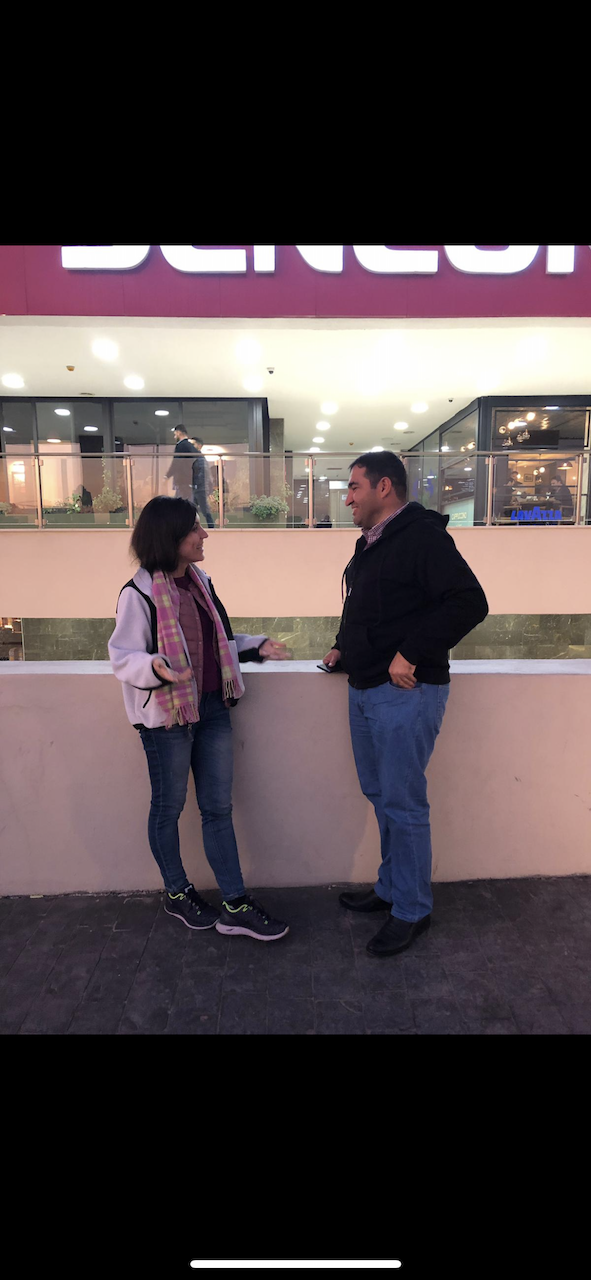
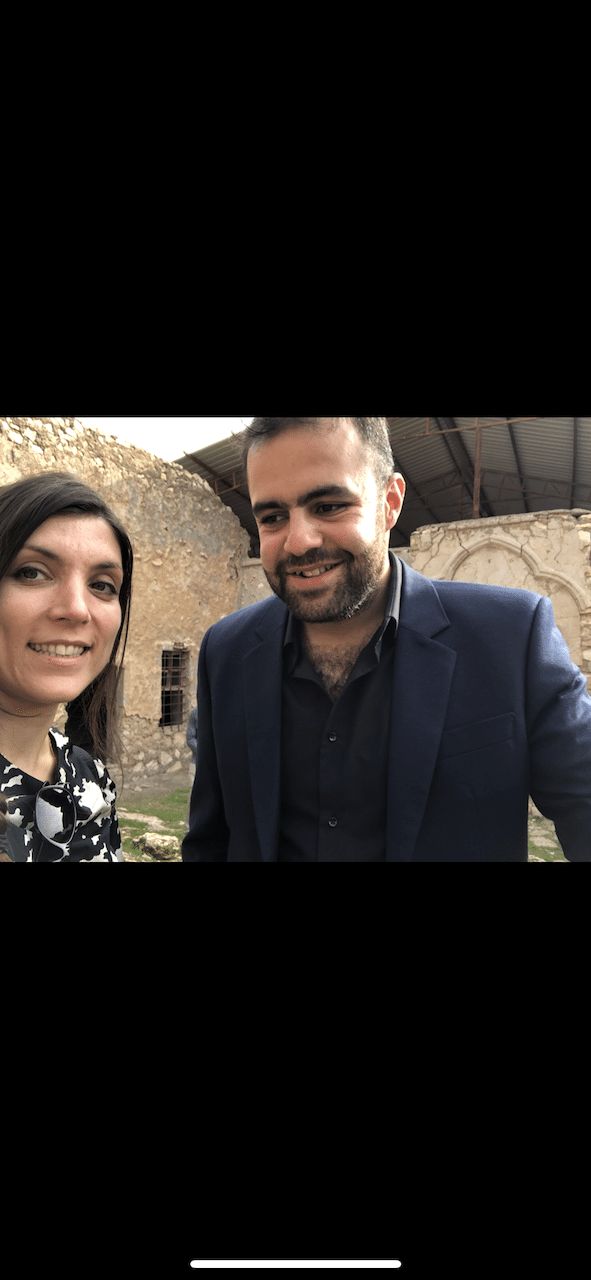
Sophia and Rekan
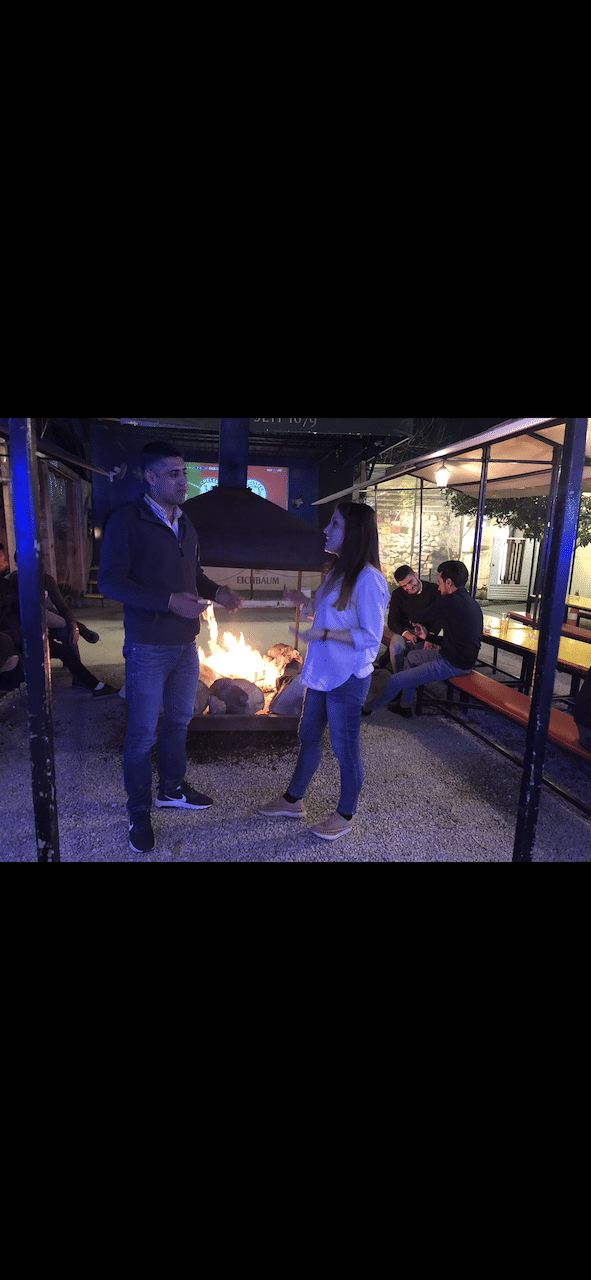
Sophia and Balin
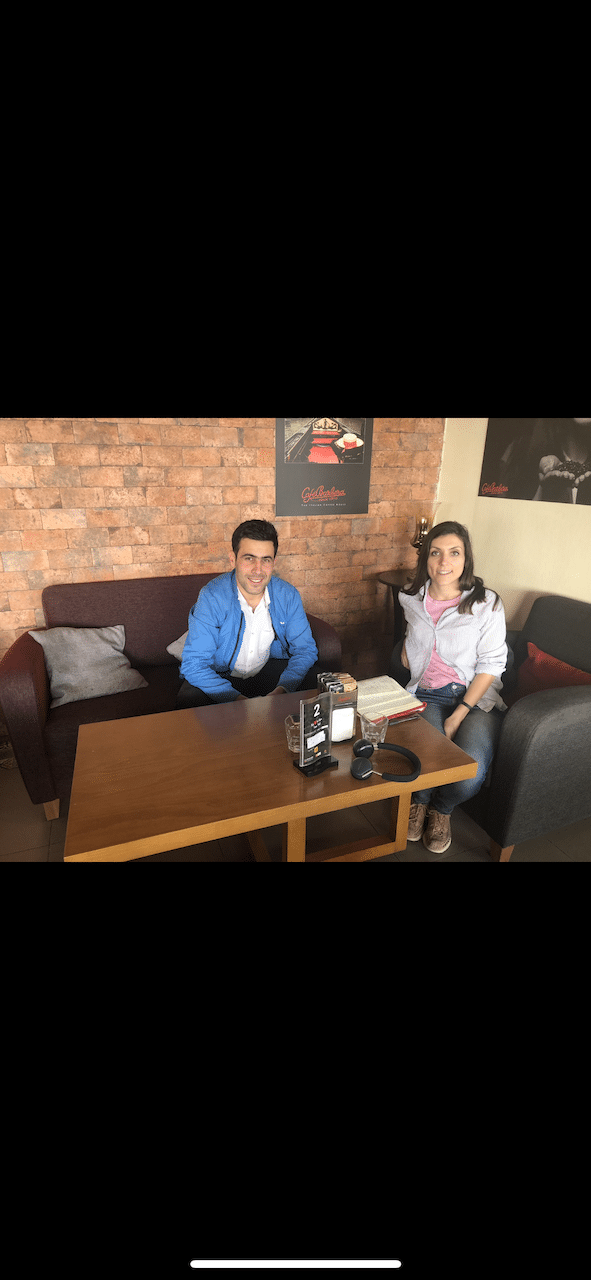
Sophia and Karwan
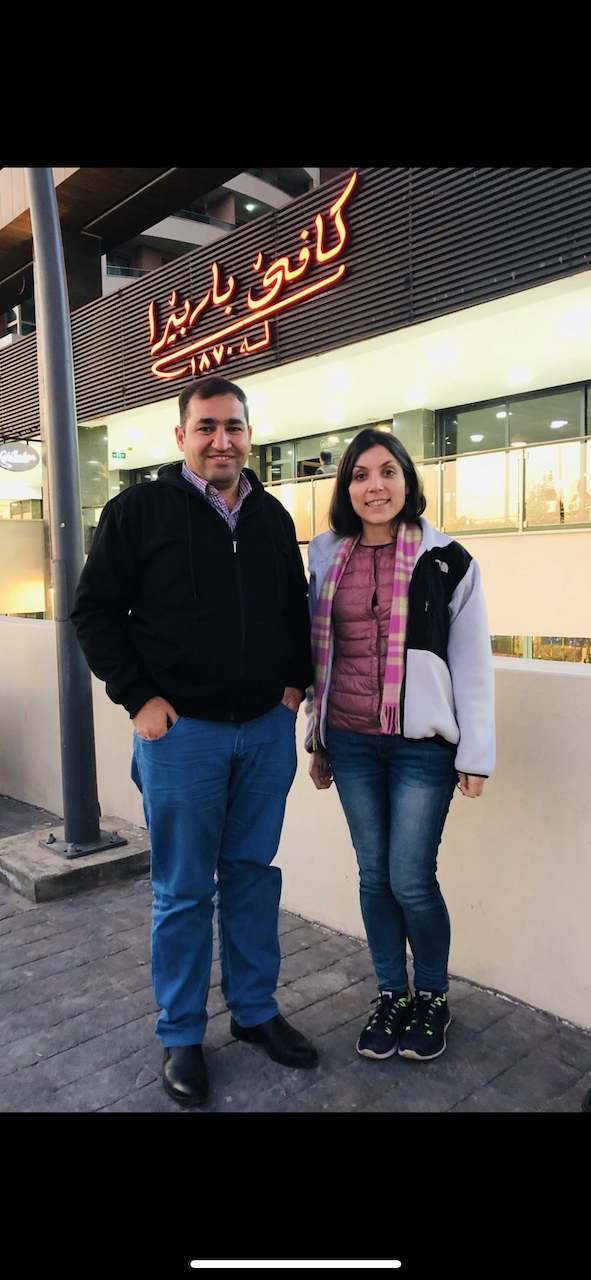
Sophia and Haval
Haval Qaraman, http://www.iraqikurdistanguide.com/
Balin Zrar, https://kurdistanexpeditions.com/
Rekan Rasool, https://www.rockurbones.com/contact
Karwan Wahed Nawkhosh, https://www.iraqikurdistantours.com/
